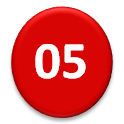 I'm a sucker for stunt journalism accounts and when this came on my radar I just couldn't resist. In Year of No Sugar author Eve O Schaub details her family's project of living one year without eating anything with added sugar. On the whole it is a mixed bag. On one hand she gives a full account of her experiences, strategies, rationale and, what many from these category botch but not her, an extended after-project discussion for her year; on the other, we find questionable design of these same strategies, no hard numbers resulting from the project and what must deter many, mounds of repetition. She and her family do complete their year on their terms, which brings hope for the rest of us, and she comes across as likable and funny and witty at times, but the important parts tend to get lost in the everyday minutiae. An abridged edition would be welcome, but until then, read-skimming might be the best path. For my part, it has made me more aware of what I'm putting into my mouth and confirmed me in some of my antisugar biases.
I'm a sucker for stunt journalism accounts and when this came on my radar I just couldn't resist. In Year of No Sugar author Eve O Schaub details her family's project of living one year without eating anything with added sugar. On the whole it is a mixed bag. On one hand she gives a full account of her experiences, strategies, rationale and, what many from these category botch but not her, an extended after-project discussion for her year; on the other, we find questionable design of these same strategies, no hard numbers resulting from the project and what must deter many, mounds of repetition. She and her family do complete their year on their terms, which brings hope for the rest of us, and she comes across as likable and funny and witty at times, but the important parts tend to get lost in the everyday minutiae. An abridged edition would be welcome, but until then, read-skimming might be the best path. For my part, it has made me more aware of what I'm putting into my mouth and confirmed me in some of my antisugar biases.| 3 stars |
Update 11/12/16: Wrote some verses on fructose just because I thought it funny.











